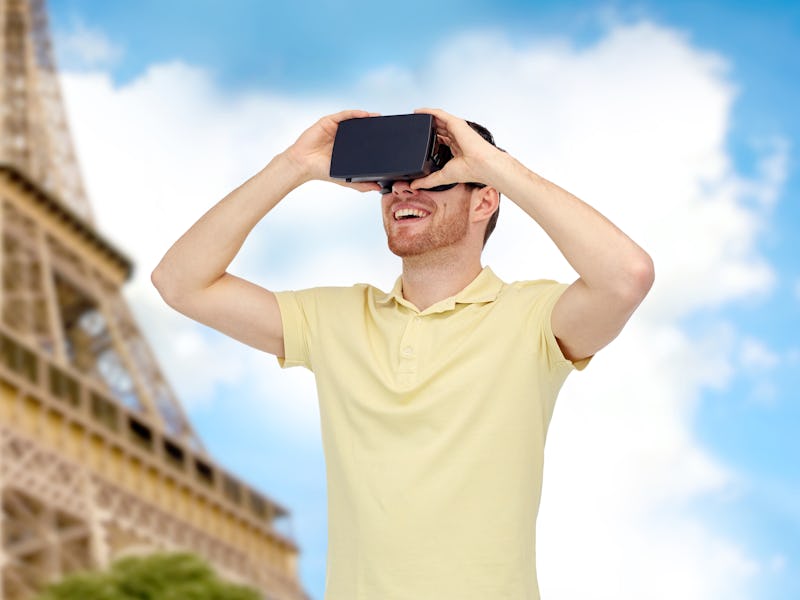Traveling the world is going to get very easy, thanks to VR
It might not beat the real thing, but it will beat browsing Wikipedia entries.

You're walking along the Seine river in Paris. The Eiffel Tower is looming above you. You cross the river to explore the Jardins du Trocadero. Less than an hour later, you're on the beaches of Rio de Janeiro. You jump into the ocean and turn around to observe the vast city behind you. In the 2020s, people may travel the world this way in virtual reality.
These days we use VR to play video games, to learn new skills, for porn, for therapeutic purposes, and more. We're already seeing VR being used to let people tour historic museums like the Louvre, and it's almost certain we are entering a time when we'll be able to explore entire cities using virtual reality. Inverse predicts that by the end of the decade, you'll at least be curious enough to try out such an exploration.
This is #3 on Inverse’s20 predictions for the 2020s.
You may be aware that there are already ways to explore cities with virtual reality. However, they are limited. Some only allow you to see certain parts of the city as if you are walking down its streets, and some, like Google Earth VR, just allow you to essentially fly around a city like Superman.
What we're talking about would go much deeper than this. We're talking about placing you in a major city and allowing you to walk into a famous cafe, check out a historic bookstore or take a swim in the ocean. There isn't yet a fully immersive travel VR app like this, but we're getting closer and closer to that kind of experience every year.
See also: Psychedelics and Virtual Reality Make a Trendy but Illegal Therapy
Maybe it's just me, but it doesn't sound too appealing to essentially do a Google street view of a city as a cultural experience. If I can't afford to actually hop on a plane and go there, I at least want to feel like I'm actually there and can interact with my environment to some degree. Ideally, you should forget you're not actually there now and then.
That's what VR is all about, and as the technology needed to create VR experiences becomes cheaper and more widely available, we will surely see it being used in many more sophisticated ways. Imagine waking up on a Sunday morning and deciding you want to take a stroll around Shibuya in Tokyo. Within moments, you're there.
VR will never, in my opinion, be nearly as good as actually traveling the world. That said, most people can't afford to be constantly traveling the world, so for those of us who love to travel but can only do so much, being able to replicate the experience in virtual reality could be pretty enjoyable.
As 2019 draws to a close, Inverse is looking to the future. These are our 20 predictions for science and technology for the 2020s. Some are terrifying, some are fascinating, and others we can barely wait for. This has been #3. Read a related story here.